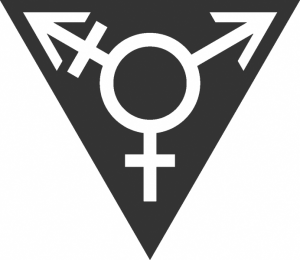
By Ellen Finn

The University of Puget Sound Bioethics club hosted Jae Bates ‘18 to speak about issues surrounding healthcare for transgender patients on April 4. Members of the club and other interested students attended the event in Thompson Hall, where Bates gave a presentation on the barriers transgender people in particular face in the healthcare industry.
While Bates has not been involved academically in bioethics, he has background in ethics as a Gender and Queer Studies minor, and drew most of his information from his own research as well as personal experience as a trans man. In the past Bates has taught K-12 teachers how to help trans children in their classrooms by informing teachers of the unique issues that trans students may face.
In his presentation, Bates defined transgender healthcare as a wide variety of things, including mental health services, which are often required by healthcare providers in order for trans patients to receive hormones or surgeries if they desire them. Although the American Psychiatric Association (APA) removed “Gender Identity Disorder” (a term that was used for transgender people) from the Diagnostic and Statistical Manual of Mental Disorders in 2012, oftentimes insurance requires that trans or non-binary people be diagnosed with gender dysphoria in order to be prescribed testosterone or estrogen.
He also stressed that transgender healthcare should be considered a part of all healthcare.
“Anyone who wants to be a healthcare medical professional should know how to treat trans people,” Bates said. “Not only physically, but socially as well. Too many trans people are harassed by doctors.”
Later in his presentation, Bates explained that oftentimes when trans people seek care for a medical issue that has nothing to do with gender or reproductive organs, doctors have higher rates of invasive, unnecessary procedures due to disbelief or curiosity about trans bodies.
Bates also stressed that not all trans or non-binary people choose to medically transition. However, those that do choose to take hormones, have surgery done, or both, face barriers in terms of gatekeeping and in terms of cost and access.
Bates gave examples from his own experience about how expensive taking hormones and getting surgery can be. He also explained how many trans people are passed through the care of many different doctors to get procedures and prescriptions that they need, making the process particularly complicated.
According to the National Transgender Discrimination Survey, 19 percent of respondents said that someone denied them medical services because of their gender identity. Additionally, half of the people polled in the survey had to explain health issues to their own doctors. This could be a significant deterring factor for the transgender community from getting the care they need.
To avoid this, Bates said that doctors should focus on the ethics they would normally follow during their work. This means they should minimize harm, meaning that doctors should appropriately assess trans people’s needs and not further stigmatize their bodies. They should also give trans people the autonomy to self-identify and have that identity acknowledged and respected by their healthcare provider.
Bates added that this also includes asking what terms an individual uses for their body, asking for consent before procedures, and being transparent.
He also said that ethically, it is important for people in the healthcare industry to see barriers and work with them or around them to give trans people the care that they need.
“The reason I do these presentations is because you will meet someone who is trans, because there are trans people everywhere, and you will want to know how to treat them well,” Bates said.
Emma Goldblatt has been the president of the Bioethics club for the past three years. She has helped change the format of the club to include more guest speakers.
“We want to demonstrate the breadth of bioethics in order to get people interested who don’t think that they’re interested,” Goldblatt said. “We’ve made a greater effort to include speakers on topics such as race, ableism, climate change, healthcare and eugenics.”
The Bioethics club meets on Wednesdays at 7 p.m. in Thompson 381.
